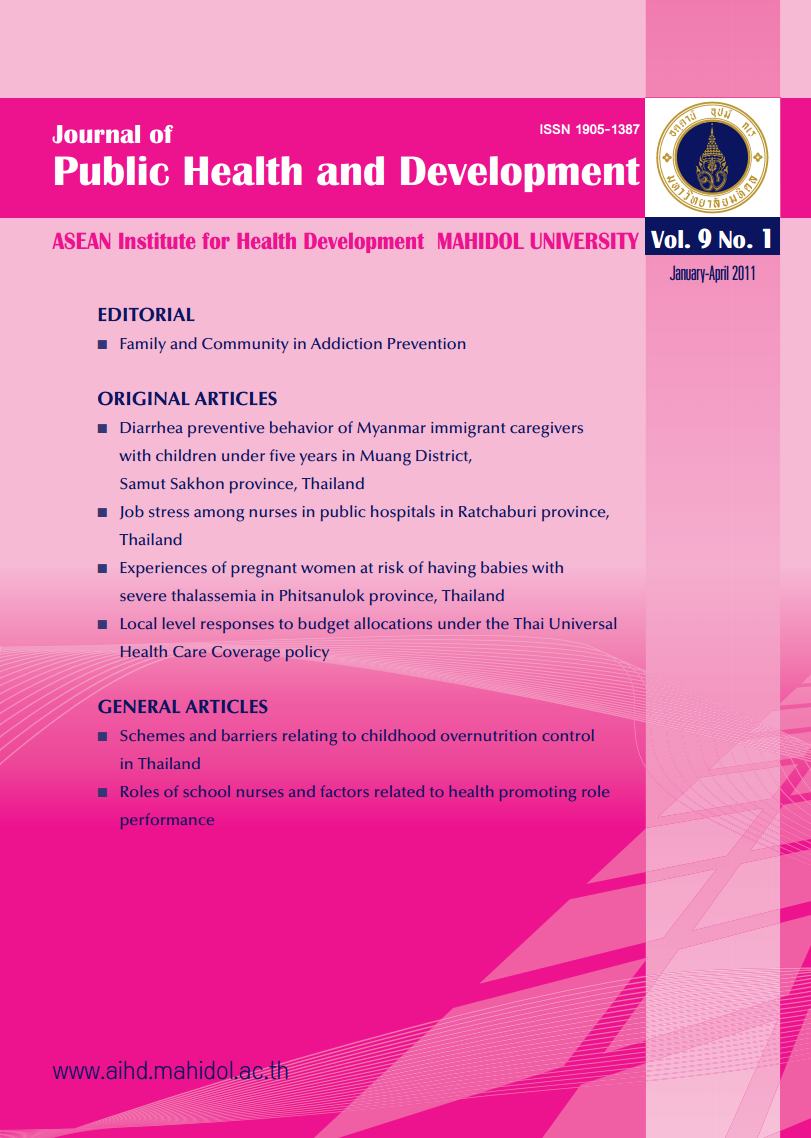Experiences of pregnant women at risk of having babies with severe thalassemia in Phitsanulok province, Thailand
Main Article Content
Abstract
The objective of this study was to explore the experiences of pregnant women at risk of having babies with severe thalassemia. It considered their knowledge of thalassemia, financial problems, psychological problems, health care services and other social problems. The study group comprised 10 pregnant women in Phitsanulok province who were screened and diagnosed at high risk of having severe thalassemic babies. In-depth interviews were conducted for data collection from May to August, 2009. Data analysis was performed by content analysis.
The study showed that pregnant women lacked knowledge about thalassemia. Most had gained their knowledge from newspapers,
text books in school, from relatives or neighbours in the community with thalassemia. Little thalassemia knowledge was gained from
health providers when they visited antenatal care clinics.
With regard to financial issues, pregnant women under the universal health care cover scheme did not pay for screening and diagnosis but had to pay for transportation when their went to health care service units. Pregnant women covered by the social security scheme had to pay in advance for all antenatal care.
Waiting to perform subsequent tests and waiting for test results had psychological consequences for the pregnant women and their
spouses. Some health providers were found to have little knowledge of the screening process. Health providers spent little time counselling pregnant women about thalassemia at antenatal care clinics.
Late antenatal care was a frequent problem for women who were
unaware that they were pregnant or who had unwanted pregnancies, especially teenagers. As a result of delayed antenatal care, pregnant
women at high risk of having severely thalassemic babies were not screened.
This study emphasizes the need for continuous education and promotion to raise disease awareness so that pregnant women will come for early antenatal care. Continued education and especially guidelines for thalassemic screening should focus on health providers. Financing thalassemic screening activities under existing health benefit schemes should be reviewed. Further research should focus on unwanted pregnancies and early screening of teenagers.


